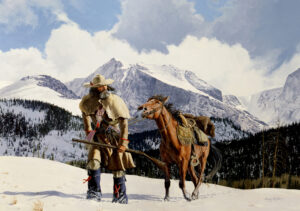CONVERSATIONS WITH WILDER, by Cameron Crowe, Alfred A. Knopf, 378 pages, $35.00.
BILLY Wilder dissected human nature with a razor-sharp wit in his movies, classics like The Lost Weekend, Some Like It Hot, Double Indemnity, and Sunset Boulevard. While his outlook often got him accused of cynicism, his movies won numerous academy awards, including best picture, screenplay, and direction for The Apartment. Even his box-office failures were interesting, especially The Private Life of Sherlock Holmes, a somewhat melancholy look at the famous detective.
Until recently Wilder hasn’t received the critical attention given directors like Orson Welles or Stanley Kubrick, but that changed last year following publication of Ed Sikov’s On Sunset Boulevard, a straight-forward (and very entertaining) biography, and Cameron Crowe’s Conversations with Wilder. A series of interviews by Crowe, who directed Jerry Maguire and Say Anything, this book presents undiluted Wilder in all his waspish charm. Even in his 90s, Wilder can still deliver a scintillating mix of wit and memory.
Born in Austria, Wilder became a newspaperman in Vienna and then in Berlin. As a Jew, he wisely fled Germany in 1933. A screenwriter in Hollywood, he moved into directing, he says, because he got sick of directors ruining his scripts. Along with accounts of his filmmaking, Wilder tells Crowe about the many stars he worked with, such as Barbara Stanwyck (“an extraordinary women . . . . Never a fault, never a mistake–just a wonderful brain she had”), Audrey Hepburn (“a thing made in heaven”), and Marlene Dietrich (“Mother Teresa with better legs”). The conversation often veers back to Marilyn Monroe. Wilder worked with her twice (The Seven Year Itch and Some Like It Hot), even though it could take her more than 50 takes to deliver a line as simple as “Where’s that bourbon?” “A continuous puzzle, without a solution,” Wilder says.
Lavishly illustrated, Conversations with Wilder provides much to fascinate film buffs and also offers an understated but warm look at the growing friendship between interviewer and subject. If nothing else, it’s evidence that, like Sunset Boulevard’s Nora Desmond, Wilder is still big–it’s the pictures that got small.
TOM HUNTINGTON is editor of American History.




